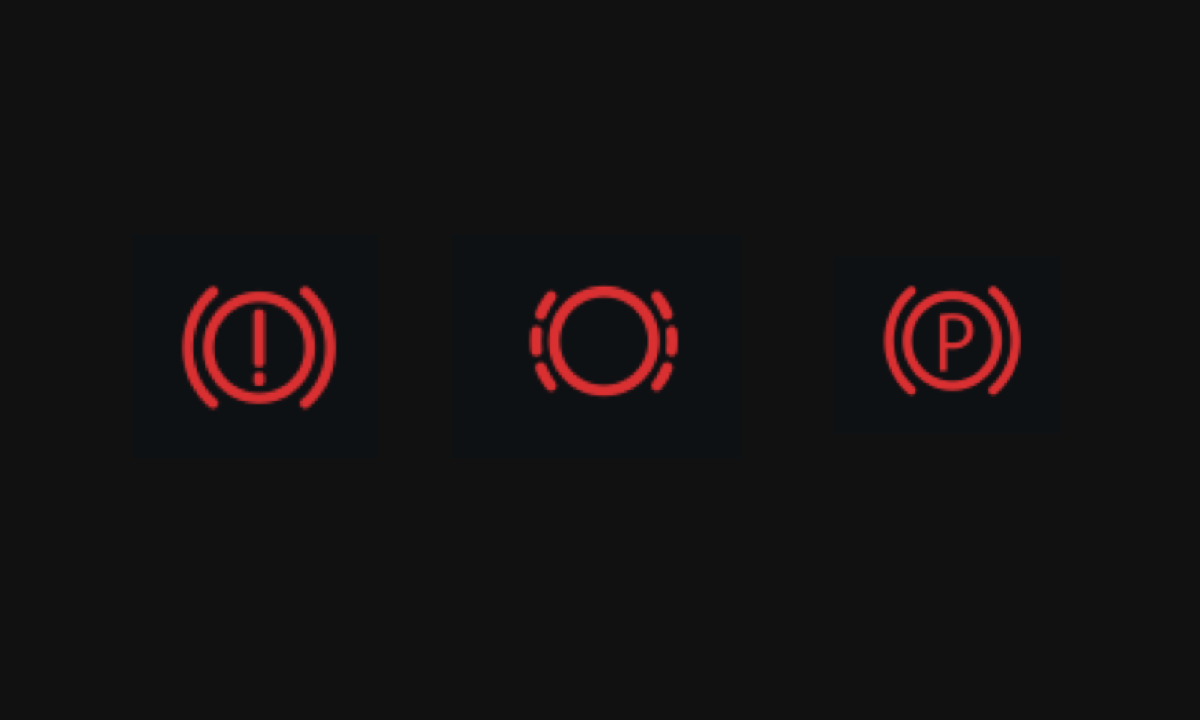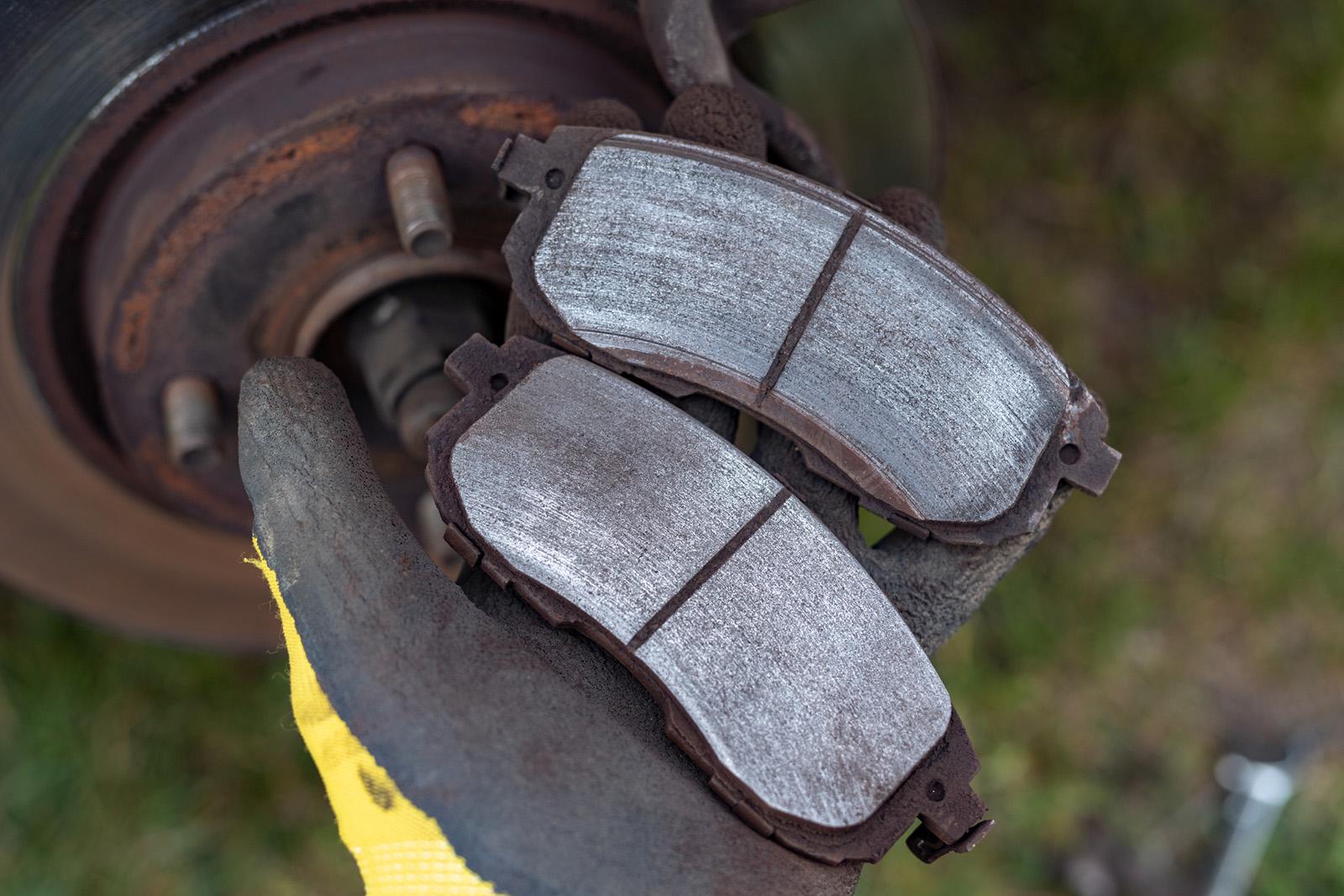Problems with the brake are hard to miss because they reveal themselves with various noises and warning lights on the dashboard. Different brake issues trigger different lights, and you will need to understand the meaning of brake warning light to keep the system working and yourself safe on the road.
After turning on the ignition, the car’s computer scans the components, causing several lights to come. But they go off eventually when the checking is done. If some of them stay on, you will need to examine the related component.
Contents
Warning Lights for the Braking System Explained
The type and number of brake warning lights can vary from one car model to another. However, most modern vehicles have three warning lights for the braking system:
- One for an engaged parking brake (red or yellow);
- Another for the anti-lock braking system (yellow); and
- The third one for the brakes (red)

Some vehicles may have just one light. In that case, check if the parking brake is on before going to examine other components. Ignoring the brake warning light could lead to bigger problems and expensive repairs, just like a check engine light.
Why Does the Brake Warning Light Comes On?
A handful of reasons are there for these lights to come on. Some are easy to fix while others need professional treatment. A few common causes are:
Parking Brake On or Malfunctioning
Some cars have a separate light for the parking brake. It is a red or yellow circle with a ‘P’ in the center circled with parentheses on either side. The light comes on when your parking brake is on and you forget to release it before driving off.
Releasing the parking brake lever will turn the light off. If it does not, the lever might be broken or the parking brake itself is malfunctioning.
SEE MORE
Low or Leaking Brake Fluid
Low brake fluid is the reason for several braking problems indicated by a red circle with an exclamation mark ‘!’ wrapped up with parentheses.
The brake fluid reservoir is a translucent tank under the hood. It has labels ‘MAX’ and ‘MIN’ molded into the body for easy inspection of the fluid level. If the level is close or below the ‘MIN’ label, top up the tank with a brake fluid mentioned in the owner’s manual. Try to match the fluid type and if you cannot, replace it with a higher number fluid. For example, you can top up with DOT 4 fluid if your car uses DOT 3.
On the other hand, if you find a low-level of fluid in the tank with slightly worn-out brake pads, there could be a fluid leak. In that case, you have to check the brake lines, fluid reservoir, and all related valves and connections to find out the trace of amber-colored liquid. A leak demands urgent attention and you should take the vehicle to a mechanic to troubleshoot that problem.
Worn-out Brake Pads
Damaged, broken, or worn-out brake pads are other reasons for the brake warning light to come on. Annoying squealing noises will also accompany the turned on light.
You should replace the pads with a fresh set even if the wear is not severe. The pads will cause metal-to-metal contact when the friction material between them wears thin. Allowing the pads to reach this condition is outright dangerous as it could destroy some braking system components.

In order to avoid those expensive repair jobs, change the pads. Also, don’t forget to examine the brake discs and sensors. You can machine the discs in case of slight wear or replace them if they are totally damaged. Sometimes, the warning light does not go away despite making all the fixes, then the system may have bad sensors.
Burnt out Brake Light Bulb
The brake light has several bulbs. If any of them burns out, the warning light will turn on because the computer will detect a circuit’s resistance change. Replacing the bad bulbs will solve this issue but remember to use the correct type. If they are regular bulbs and you want to replace them with LEDs, hire a mechanic to do the job.
Is It Safe to Drive with Brake Warning Light On?
The straight answer is ‘No’. Any warning light indicates a problem in the braking system, which is too dangerous to ignore. Think of a situation when you need to stop the car but cannot because the brake is not working. It is dangerous for yourself and other drivers on the road. Go to a car servicing shop if any warning light persists. Dallying or ignoring the trouble will only make it worse and affect other components.


